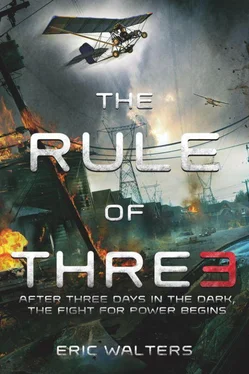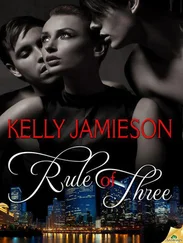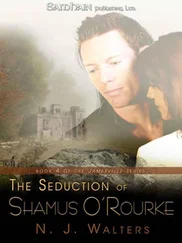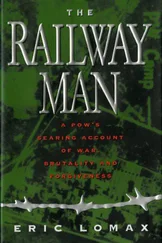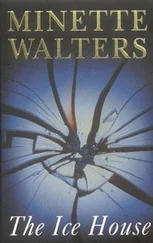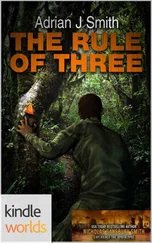Hope was good. Unrealistic hope wasn’t.
Just by the creek, Herb was standing on one of the platforms overlooking the highway, staring out. I wondered what he was looking at—what he was thinking. I wanted to talk to him, and he hadn’t been the easiest person to find.
In the rush to help lead the effort to do things he seemed to be everywhere and nowhere all at once, and when we were together, there were so many other people that we really couldn’t talk much. Now I wanted to get to him before anybody else did.
I walked quickly along the boundary. In the shadow of the highway fence I felt safe. It was so solid—cement and steel—that it inspired confidence. I just wished we had the material and skills to build a wall like it around the whole neighborhood.
Herb noticed me coming, waved, and motioned for me to join him. I was glad for the invitation. I climbed up the ladder—which had been borrowed from a house and was tied to the ledge. The platform sagged slightly under my added weight.
“It’s pretty quiet out there,” Herb said softly. “That’s what they always say in old cowboy and war movies before all hell breaks loose.”
“Do you think all hell is going to break loose?”
“Hopefully not until we’re ready to handle it.”
“And do you think that will be soon?” I asked.
“Soon that hell will break out or soon that we’ll be able to handle it?”
“Both, I guess.”
“I am pleasantly surprised by how fast things are coming together.”
Our conversation was settling into a familiar groove. Me the optimist, him the pragmatist. Me asking questions, him not always answering them directly. “So you think we’ll be ready?”
“I didn’t say that,” Herb said. “We’re getting more ready every day, and we can certainly handle some things.”
“But not everything.”
“A large, organized, well-armed group could sweep along this highway, over these walls, and wipe us away like that,” he said, snapping his fingers. “Think about what happened at the police station.”
I didn’t like to think about it, but he was right. People had attacked and destroyed a police station with frightening violence and terrifying weapons. If they attacked here, what would we be able to do to stop them?
I looked along the highway and was grateful to see only disabled cars. There were hundreds and hundreds of them stretching out as far as the eye could see in both directions. All had been abandoned midcommute, and while most remained intact, some had been vandalized. At least one looked like it had been barbecued.
“Our saving grace is that no large, organized, well-armed group has appeared on our horizon so far,” Herb continued.
“Do you think we could stop them… the sort of group that attacked the police station?”
“Unlikely. I don’t know who they were, but they had to be some sort of militia or even members of our own military.”
“You think the army did that?” This suggestion jolted me. I still had hopes that the military would come to rescue us.
“We don’t have enough information to know the answer for certain. You only have to know history to know that soldiers can become protectors or warlords, depending on their leadership and all sorts of other factors.”
“And you think that’s happening here?” I asked.
“Look around. Aren’t we constructing a feudal kingdom to protect ourselves?”
“But that’s to protect ourselves, not hurt other people.”
“Not everybody has such noble ideals. Right now, even more than the walls, our best defense is our distance from the city, combined with the lack of modern technology. Lack of transportation and communication has meant that anybody who would attempt to attack us would find it difficult to launch an effective attack.”
“I guess that’s all good.”
“Good for now, but don’t forget that we’re not the only ones getting organized. Challengers will soon appear on the horizon, and they’re going to want what we have inside these walls,” Herb explained. “The irony is that the better we prepare, the more force will be wielded against us.”
“You mean the higher the fence, the more we build our defenses, the more people are going to think there’s something here to defend.” After weeks with him, I was getting good at understanding the guy.
“That’s right, Adam. This neighborhood is going to be like a flame to moths. We’re going to attract attention, if not attacks. But we have no choice. We’ll prepare as best as we can. I’ll be happier when all the walls are finished and all the trees and shrubs outside the walls are cut down.”
Crews were working on the outside of the fence with chain saws and axes, cutting down and clearing anything that anybody could hide behind. The bigger trees were being cut into sections and hauled inside the walls. The wood would be stacked to dry and season and eventually be used for firewood.
“It’s important that we have clear lines of sight if there’s a firefight,” Herb said.
I shook my head. It really threw me to even hear stuff like that.
“I understand it’s overwhelming, but it’s important that I keep being honest—at least with some people. For now let’s just keep planning and working and preparing.”
The committee was gathered in our living room for one of their nightly meetings. There were a dozen people, sitting on chairs and couches that had been pushed back against the walls to open up the center of the room. Herb and my mom were running the show. Howie was there, too. They’d put him in charge of the checkpoints and the guards on the walls. I pretended to clean the pantry, which was starting to look pretty cleaned out in general these days, listening in from the kitchen as they talked.
Danny and Rachel sat at the kitchen table, quietly playing a game of hangman on a scrap of paper. For a second I wished I could be like them, not really understanding the big picture.
The community’s leaders were all there—Judge Roberts, Councilwoman Stevens, Dr. Morgan, Ernie Williams, Mr. Gomez, who was now in charge of salvaging teams, Mr. Peterson, Mr. Nicholas with his engineering skills, and Captain Saunders, the fire chief.
They were finishing up discussing the need for day care. There was so much work to do that there had to be a place for young kids to be cared for while the parents and older siblings were pitching in. So the committee agreed to open up a day care center and a school for kids twelve and younger. I thought that might be something Lori would be interested in helping organize.
Next they discussed the medical situation. The walk-in clinic was open for business, and half the pharmacy was being converted to be a small-scale urgent-care hospital, with space for eight beds. That would be ready within a week, with donations of beds, curtains, and furniture coming from houses all over the neighborhood. Dr. Morgan had even created a small operating theater where at least simple procedures could be done.
I couldn’t help wondering whether Mr. Smith would have died had the clinic been up and operating. It had been over two weeks since he was killed, and his family had finally agreed to a funeral. Up to this point his body had been stored in the big freezer in Ernie Williams’s grocery store. Ernie was here and seemed eager to get the body out of his one operating freezer.
Two doors down from the clinic, a dentist had already started seeing patients. All four—clinic, pharmacy, hospital, and dentist—were being powered by one generator. It wasn’t enough electricity for full service but provided lights, a cooler for some medications, and, if other things were turned off, enough power to run a dental drill and the few pieces of medical equipment that were still operational and useful in a primitive setting.
Читать дальше
